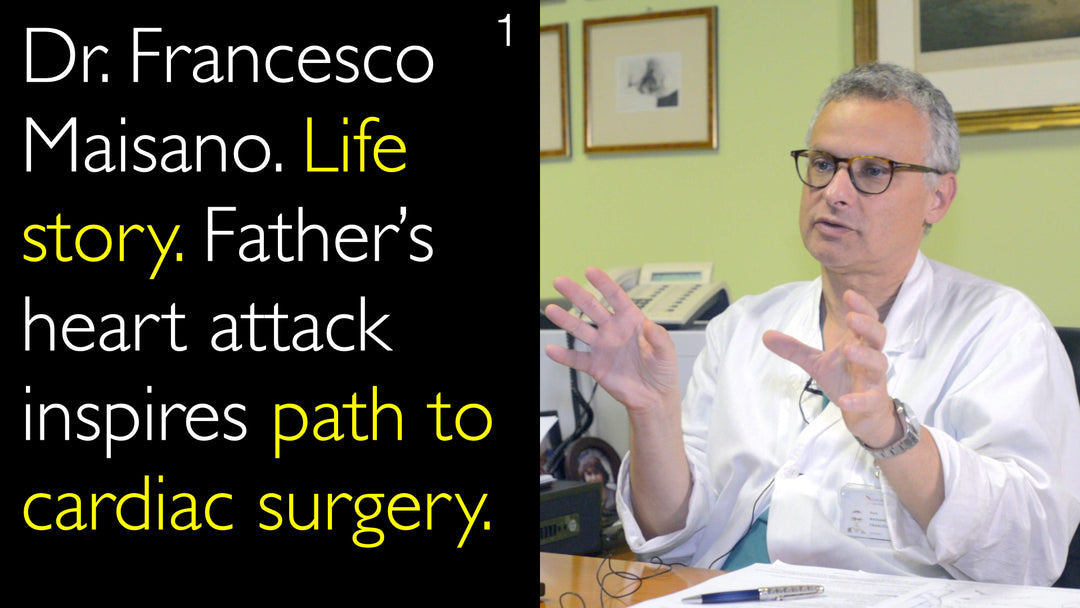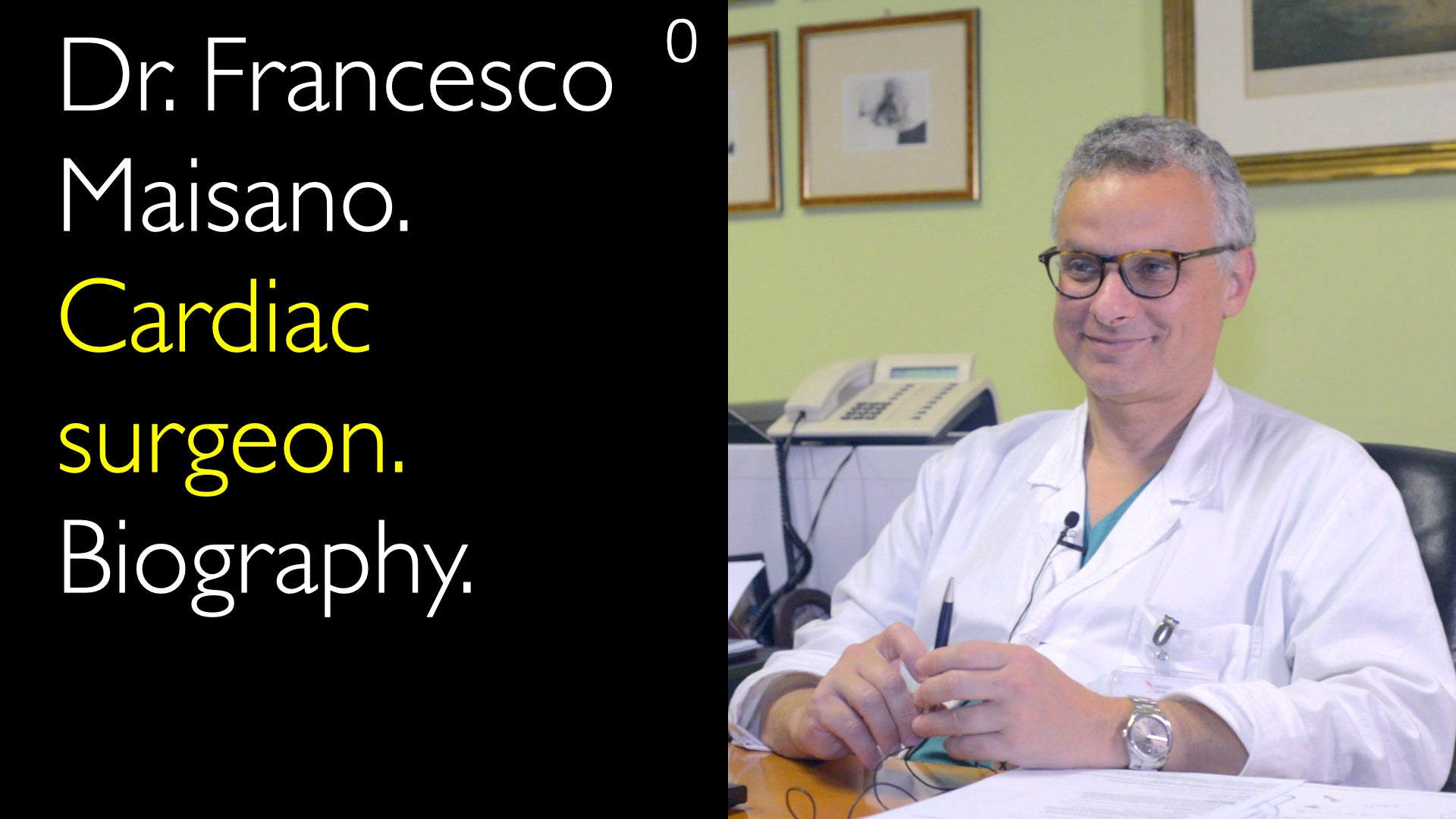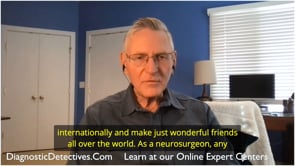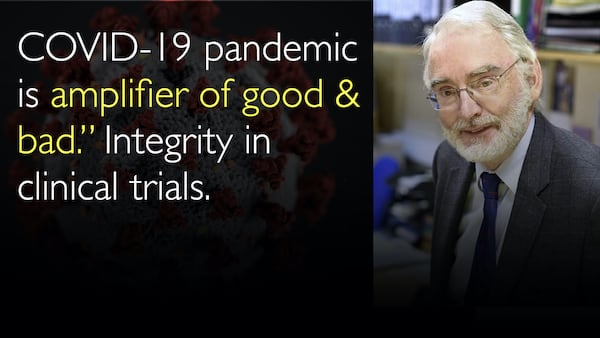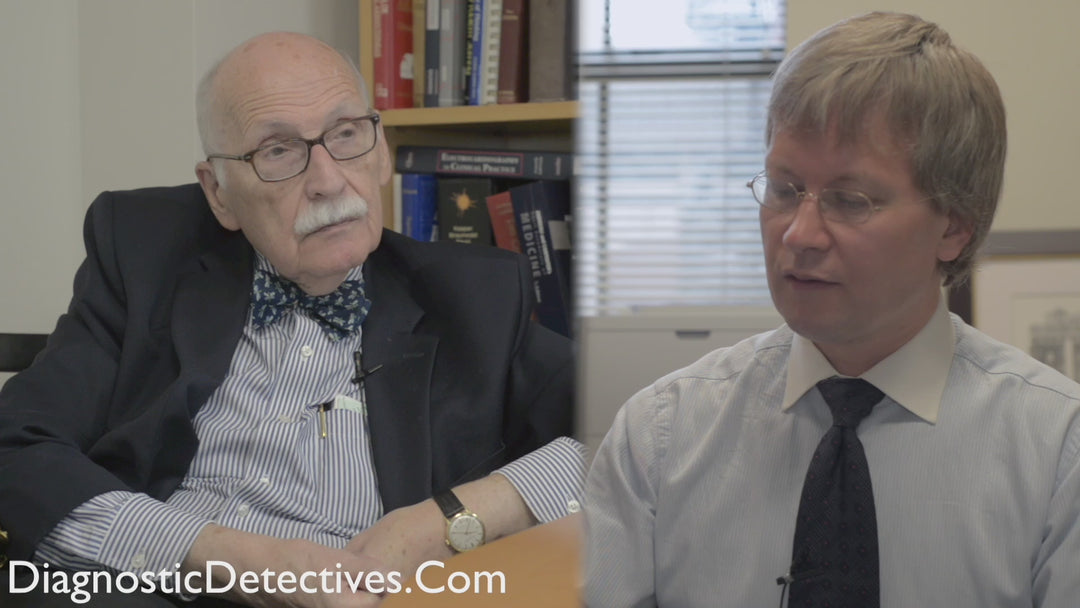Leading expert in minimally invasive cardiac surgery, Dr. Francesco Maisano, MD, explains how a personal family tragedy inspired his career path and his pivotal role in the evolution of heart valve repair. His father's severe heart attack in the 1980s led him to study under pioneering surgeons like Professor Ottavio Alfieri. Dr. Maisano was at the forefront of developing catheter-based technologies for mitral regurgitation, helping to usher in a new era of endovascular procedures that offer patients less invasive treatment options with significant advantages.
Minimally Invasive Heart Surgery Evolution and Mitral Valve Repair Innovations
Jump To Section
- Personal Inspiration for Cardiac Surgery
- Mentorship Under Professor Alfieri
- Cardiac Surgery in the 1990s: A Flourishing Era
- The Rise of Interventional Cardiology
- Pioneering Minimally Invasive Techniques
- The Future of Endovascular Cardiac Procedures
- Full Transcript
Personal Inspiration for Cardiac Surgery
Dr. Francesco Maisano, MD, was inspired to pursue a career in cardiovascular surgery following a profound personal event. His father suffered a very serious anterior myocardial infarction, a type of severe heart attack, in the 1980s. At that time, advanced emergency treatments like primary percutaneous coronary intervention (PCI) were not yet available. This family crisis during his second year of medical school became the catalyst for his life's work in heart surgery.
Mentorship Under Professor Alfieri
The search for a solution led the young Dr. Maisano to Professor Ottavio Alfieri in the Netherlands, who was renowned for his surgical skill and judgment. Dr. Francesco Maisano, MD, notes that Professor Alfieri's greatest skill was knowing precisely when to operate and when not to operate. This decision not to operate on his father ultimately saved his life. This experience forged a powerful mentor-mentee relationship and a deep respect for clinical judgment that would define Dr. Maisano's own approach to patient care.
Cardiac Surgery in the 1990s: A Flourishing Era
Dr. Francesco Maisano, MD, began his training during what he describes as a golden age for cardiac surgery. The 1990s was a period where the field was flourishing, and cardiac surgeons held a powerful, dominant position in cardiovascular medicine. Interventional cardiology was emerging but initially served more as a support to surgical interventions. This environment provided a robust and traditional foundation for his surgical education.
The Rise of Interventional Cardiology
Dr. Maisano's generation witnessed the most dramatic change in cardiovascular medicine's history. The advent of drug-eluting coronary stents made angioplasty a real and powerful alternative to coronary artery bypass surgery. Dr. Francesco Maisano, MD, explains that cardiac surgery went from being the "king of the forest" to sharing that title with the rapidly advancing field of interventional cardiology. This shift created both competition and opportunity for innovation.
Pioneering Minimally Invasive Techniques
Positioned at this crossroads, Dr. Francesco Maisano, MD, had a unique opportunity to work on the cutting edge of new technology. He was involved in the early research and development of catheter-based technologies for treating mitral regurgitation. These innovations were based on the Alfieri technique, a surgical repair method. Training under masters like Professor Antonio Colombo, a legend in interventional cardiology, allowed Dr. Maisano to develop a hybrid expertise that was rare for surgeons at the time.
The Future of Endovascular Cardiac Procedures
Dr. Francesco Maisano, MD, sees endovascular procedures as the natural evolution of surgery. He believes that while traditional surgery remains an excellent solution, nearly everything done in surgery can potentially be emulated with a less invasive, endovascular approach. This transformation is driven by advancements in technology and imaging. According to Dr. Maisano, this shift offers tremendous advantages for patients, reducing recovery times and improving overall outcomes. The future of cardiac care is moving decisively toward these minimally invasive techniques.
Full Transcript
Dr. Francesco Maisano, MD: Professor Maisano, I hope, will also share with us his amazing professional life story, his personal quest to ease the complications of a heart attack in his own father, who was a skilled general surgeon. That's what led Dr. Maisano on an amazing path of innovation in cardiac surgery that all patients in the world now have a chance to benefit from.
It's a career that started many years ago, and it is a very simple career. I started my practice and my education in cardiovascular surgery as part of a personal story, which I think is common to many people. My father had a very serious anterior myocardial infarction. At that time, there was no primary percutaneous coronary intervention available. We are talking about the 1980s.
After that, he immediately had a lot of arrhythmias. He had a really difficult situation. The professors told me, "You should go to Holland, where you will find Professor Ottavio Alfieri. He is the only one who can save your father." At that time, I was in the second year of medical school. I went with a plane offered by the army here in Italy. We went to the Netherlands; it was like a last-hope trip.
When I saw Professor Ottavio Alfieri, I was disappointed. I was expecting this big professor, old, with a big thick beard, like a god. But I found somebody in his mid-30s, very smart. Immediately, I felt like there was some link with this person. He actually saved the life of my father because he decided not to operate on him.
This is one of the main features of Professor Alfieri, who is very well known for all the inventions and ideas and surgical operations. But one of the best features of Professor Alfieri's skills is to know exactly what to do and what not to do to save the life of the patient. He saved the life of my father with that.
After that, I started traveling to Brescia. There was a small hospital where Professor Ottavio Alfieri established himself after the Netherlands. Then I started the process to become a cardiac surgeon. We are in the 1990s. The 1990s was the time when cardiac surgery was flourishing. It was probably a very powerful position to be a cardiac surgeon.
Interventional cardiology was starting, but it was still the time when it was a service to cardiac surgery. My generation has been exposed to the most dramatic change in the history of cardiovascular medicine. We started as the king of the forest. After a few years, we realized that the forest had another king, which was at least as strong as us. This was interventional cardiology.
Interventional cardiology was established in the late 70s, early 80s. But it became really a strong alternative to cardiac surgery at the end of the 90s. Going forward, when the drug-eluting coronary stents became available, angioplasty became a real alternative to coronary artery bypass surgery. After that, at the beginning of the 2000s, we started seeing the emerging technologies for percutaneous structural interventions.
In these changing times, I had a great opportunity, first of all, to work with Professor Ottavio Alfieri, who developed the Alfieri technique. For this reason, I was involved in the very early stage of the research and development for new technologies. Treating patients with mitral regurgitation with catheter-based technologies was based on the Alfieri technique.
At the same time, I was trained not only by theory but also by Antonio Colombo. He is one of the masters of interventional cardiology. In this institution, in San Raffaele Hospital in Milan, at that time, there were three kings. There was Professor Ottavio Alfieri, Professor Antonio Colombo, and Professor Carlo Pappone. He is another very famous interventionalist and electrophysiologist.
In this environment, I was very lucky to be surrounded by these mentors who helped me develop the concept of minimally invasive heart procedures.
Although surgery remains even today an excellent solution for many patients, there are solutions that may emulate surgery with a less invasive approach. Potentially, everything we do in surgery can be done through a minimally invasive approach, through an endovascular approach.
As we move forward, I see endovascular procedures as the natural evolution of surgery. It is true not only in cardiac surgery but in many areas of surgery. This is happening today. It's all about technology. It's all about imaging. It's all about changing the environment where we work. Obviously, this has tremendous advantages for the patients.


